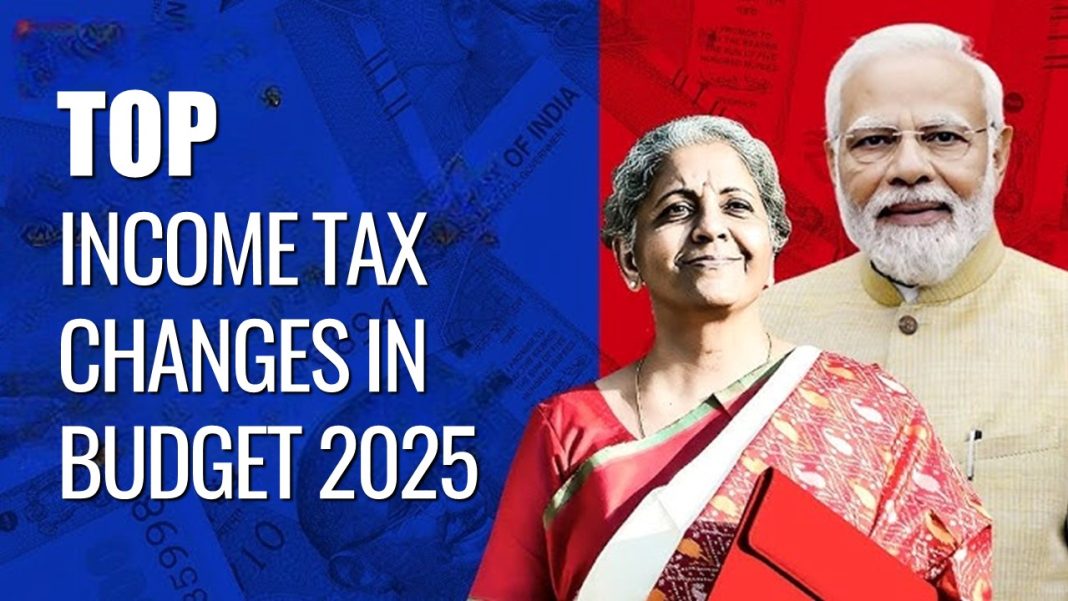Union Budget 2025: Top 10 Income Tax Changes want by Middle-Class from Finance Minister
As Union Budget 2025 approaching, a lot of hope is being anticipated in terms of changes in income tax policies to ease the burden on middle-class taxpayers. Some of the proposals floated by experts and analysts in this regard are reforming the personal income tax slabs, housing benefits, savings incentives among others, curbing inflationary pressures while ensuring taxpayers’ financial stability.
Top 10 Income Tax Changes that the Middle Class Hopes the Budget will bring:
1. Income Tax Slabs Revised
Many think that revision of slabs for tax would be a landmark relief to middle-class taxpayers. Suggestions include raising the exemption limit under the income tax regime to Rs.4 lakh. Some feel it should be further increased to Rs.10 lakh. Others suggest a cut in income tax rates for an individual with income up to Rs.15 lakh annually intake to increase disposable income and consumption.
2. Benefits of Home Loans in the New Tax Regime
The government is still keen on encouraging home ownership, and there is a call to extend the benefits of housing loans under the new tax regime. Even though these benefits are a little lower than those in the old tax regime, they could encourage more taxpayers to invest in property.
3. Increased Interest Deduction for Homeowners
Homebuyers have been expecting an interest deduction limit on housing loans under Section 24(b) to rise. Suggestions include that interest paid on at least one property should be fully deductible, or that the present Rs.2 lakh limit has to be raised to Rs.3 lakh.
4. Increased Deductions for NPS
To encourage long-term savings through NPS, proposals include raising the additional deduction limit under NPS from Rs.50,000 to Rs.1,00,000. Moreover, there is a demand that withdrawal be exempted under the EEE framework.
5. HRA Benefits for Tier 2 Cities
To make sure equity in treatment for residents of high-cost urban cities, the proposal has suggested extending the 50 percent HRA exemption to cities like Hyderabad, Pune, and Bengaluru.
6. Increase Deduction Limit under Section 80D
Taking into account the increasing health cost, increasing the tax deduction limit under Sec 80D is absolutely necessary. It has suggested, in fact that raise the limit to Rs.50,000 for individuals and Rs.1,00,000 for senior citizens, double the current limits of Rs.25,000, and Rs.50,000 respectively.
7. Delay in Tax on PF Interest
People are asking the government to delay the tax on interest earned from Provident Fund (PF) if it goes above Rs.2.5 lakh. Instead of taxing it every year, the tax should be applied only when the money is withdrawn. This would help taxpayers manage their money better.
8. Simpler Capital Gains Tax Rules
There is a need to simplify the rules for taxing profits from investments. Suggestions include having the same tax rates for similar types of investments, like treating Indian and international stocks equally, and making tax rules for different types of gold investments the same. Moreover, with the increase in tax rates for stock profits, many feel that the Securities Transaction Tax (STT) should be abolished.
9. Increased Basic Exemption Limit for Senior Citizens
It has suggested raising the minimum exemption limit in order to mitigate the financial strain on senior citizens. This measure will help go a long way to ease the concern of pensioners and those on fixed income generation.
10. Increase Section 80C Limit
The current deduction limit under Section 80C stands at Rs.1.50 lakh, and it remains stagnant since 2014. Each one is asking for an increase and submitting a host of proposals to stimulate investments in tax-saving instruments such as Tax-Saving FDs, PPFs, and other financial products.
Conclusion
The middle class is expecting a lot from the Union Budget 2025, particularly in the realm of personal income tax reforms. If such recommendations come to pass, it would mean that the government would both alleviate the wallet constriction on taxpayers and enhance economic growth through increasing disposable incomes and investments. The eyes are all now on Finance Minister Nirmala Sitharaman as she prepares to unveil the much-awaited budget.



